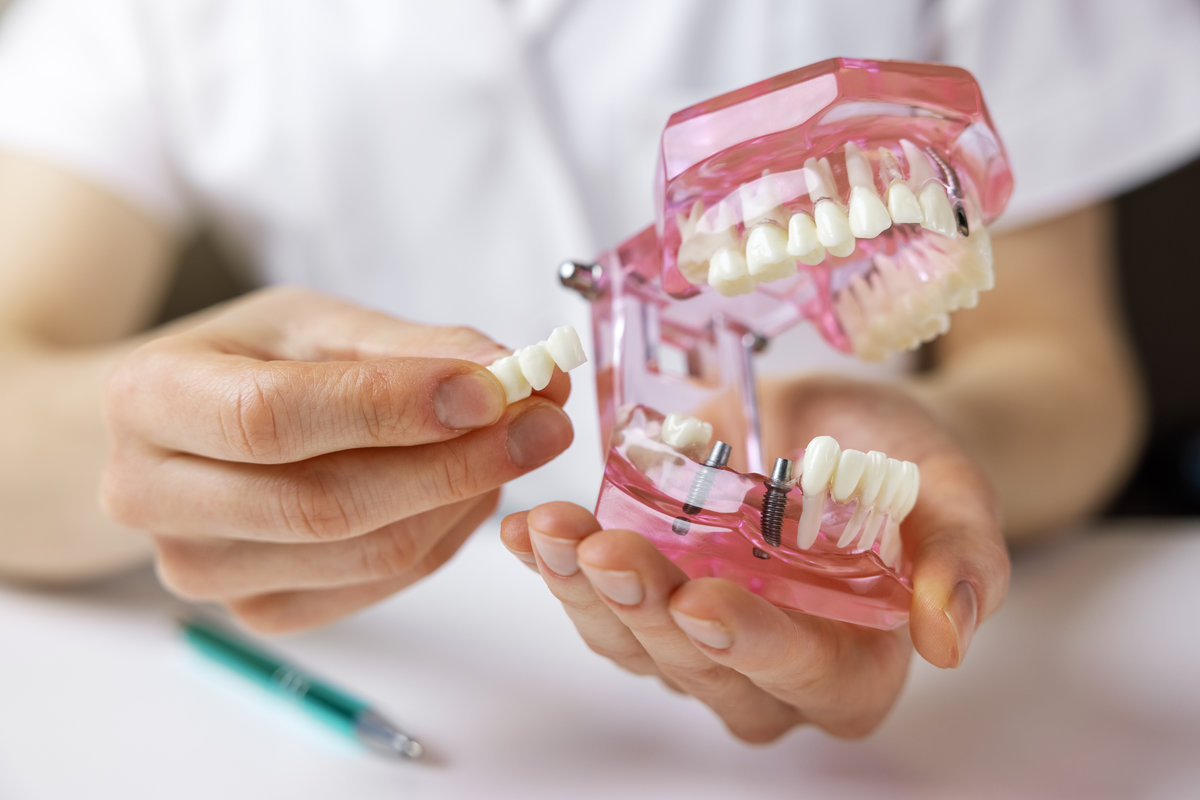
When you lose a tooth, replacing it quickly becomes essential for both function and appearance. Two of the most common solutions are dental implants and traditional bridges, and choosing between them depends on your specific situation, oral health, and long-term goals. Dental implants offer a standalone replacement that doesn’t rely on neighboring teeth, while bridges use adjacent teeth as anchors to support an artificial tooth.
Both options can effectively restore your smile, but they differ significantly in how they work, how long they last, and what they require from your existing teeth. Understanding these differences can help you make a confident decision about which restoration best fits your needs.
How Dental Implants Work
Dental implants function as artificial tooth roots. A titanium post is surgically placed into your jawbone, where it fuses with the bone over several months through a process called osseointegration. Once the implant has integrated, a custom crown is attached to the post, creating a complete tooth replacement that stands independently.
This approach preserves your natural tooth structure because it doesn’t require altering adjacent teeth. The implant stimulates your jawbone similar to a natural tooth root, which helps maintain bone density and facial structure over time. Implants typically last decades with proper care and function just like your natural teeth when eating and speaking.
How Traditional Bridges Work
A traditional bridge uses the teeth on either side of the gap as support structures. These neighboring teeth are prepared by removing some enamel to accommodate crowns, which are then connected to an artificial tooth that fills the space. The entire restoration is cemented as one piece.
Bridges offer a faster solution than implants, typically requiring only two or three appointments over a few weeks. They don’t involve surgery, which makes them appealing if you prefer to avoid surgical procedures or if you lack sufficient bone density for implants. The main consideration is that they require modification of healthy adjacent teeth, and they don’t prevent bone loss in the area where the tooth is missing.
Comparing Longevity and Maintenance
Dental implants may last 25 years or more with proper care, making them one of the most durable tooth replacement options available. You care for implants just like natural teeth through regular brushing, flossing, and professional cleanings. The crown portion may eventually need replacement, but the implant post itself rarely requires intervention once fully integrated.
Traditional bridges typically last 10 to 15 years before needing replacement. They require careful cleaning around and under the artificial tooth to prevent decay in the supporting teeth. Both options demand commitment to good oral hygiene, and regular dental visits allow us to monitor your restoration and address any concerns before they become problems.
Which Option Is Right for You
Dental implants generally provide the most comprehensive solution because they preserve bone, don’t affect neighboring teeth, and offer superior longevity. However, they require a longer treatment process and adequate bone support. Bridges may be preferable if you want a quicker restoration, prefer to avoid surgery, or if the adjacent teeth already need crowns for other reasons.
Your overall oral health, the location of the missing tooth, and your personal preferences all play important roles in this decision. Some patients benefit from combining approaches, using implants in some areas and bridges in others based on their specific anatomy and needs.
Restoring Your Smile in New York Today
At Dental West NYC, we evaluate your unique situation to recommend the restoration most likely to meet your needs and goals. As a fee-for-service practice, we focus on what you actually need rather than what insurance may cover. This approach allows us to provide honest guidance about the best long-term solution for your oral health.
Our experienced team uses advanced diagnostic technology to assess bone density, gum health, and the condition of surrounding teeth before recommending a treatment plan. We include complimentary fluoride treatments with every cleaning to help strengthen your natural teeth and support your overall oral health. Book your consultation online to explore your tooth replacement options.



